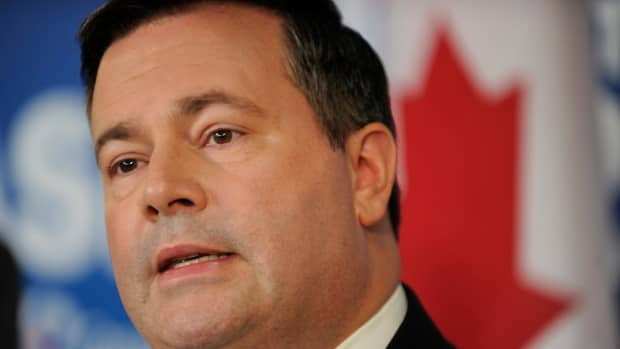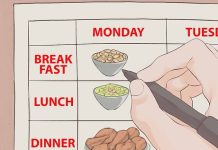[ad_1]
Alberta Opposition Leader Jason Kenney is joining the voices against what he calls “an unfair equalization deal.”
This week, news broke that the federal Liberal government would be extending the current equalization payment formula until 2024 — without negotiating with the provinces.
“This is a slap in the face to Alberta,” Kenney, the United Conservative Party leader, told reporters at a Friday morning press conference in Calgary.
“It means we will continue to be forced, even when times are bad in Alberta, forced to subsidize public services in other parts of the country where politicians have been trying to block out pipelines and impair our energy industry.”
Opposition MPs and several provincial governments didn’t initially notice the decision, which was buried in a 584-page Budget Implementation Act.
Alberta Premier Rachel Notley has said the current system, which had been set to expire in 2019, is “disadvantaging Alberta.”
The federal government distributes money to provinces with lower fiscal capacities so comparable levels of services like health care and education can be provided across the country. The equalization program is funded through taxes paid to Ottawa.
Table of Contents
ToggleCircumstances ‘changed dramatically’
Kenney was a member of Parliament in the former federal Conservative government when the current system was put in place.
In response to a reporter’s question on his role in that formula, he said his government did negotiate with provinces and made helpful changes.
“I think the circumstances have changed dramatically,” Kenney said, referring to Alberta’s recent economic downturn.
“And one circumstance that has changed, we have a political party, the party I lead, which is being much more forceful frankly than the previous [Alberta Progressive Conservatives] were.”
“I don’t understand why Rachel Notley’s government has been so passive on this,” he added.
Higher than national average
Alberta Finance Minister Joe Ceci has also said the calculations have “not worked for Alberta, even during the depths of our recession.” He has promised to raise the issue at next week’s finance ministers’ meeting.
However, in an opinion piece Friday, Calgary political scientist Trevor Tombe said that despite the recession, Alberta’s economy remained the strongest in Canada.
“At bottom in 2016, Alberta’s GDP was nearly $73,000 per person — higher than any other province and much higher than the national average of $56,000,” he wrote. “No reasonable formula meant to equalize would transfer scarce dollars to the highest income province.”
He also said that as the decision a done deal, it closes the doors for negotiation and solid proposals for alternatives to the controversial equation.
- How equalization payments work, explained by CBC’s Power & Politics:
Kenney is proposing a referendum on equalization and that Notley follow the lead of Saskatchewan Premier Scott Moe. On Wednesday, Moe pitched a proposal that he said would fix the system, specifically by cutting the equalization program in half and distributing savings to all provinces based on population.
Other premiers, including in Newfoundland and Labrador, have also expressed dissatisfaction.
Kenney said he and others find the lack of negotiation “shocking,” and accused Justin Trudeau’s federal government of acting in bad faith.
[ad_2]








